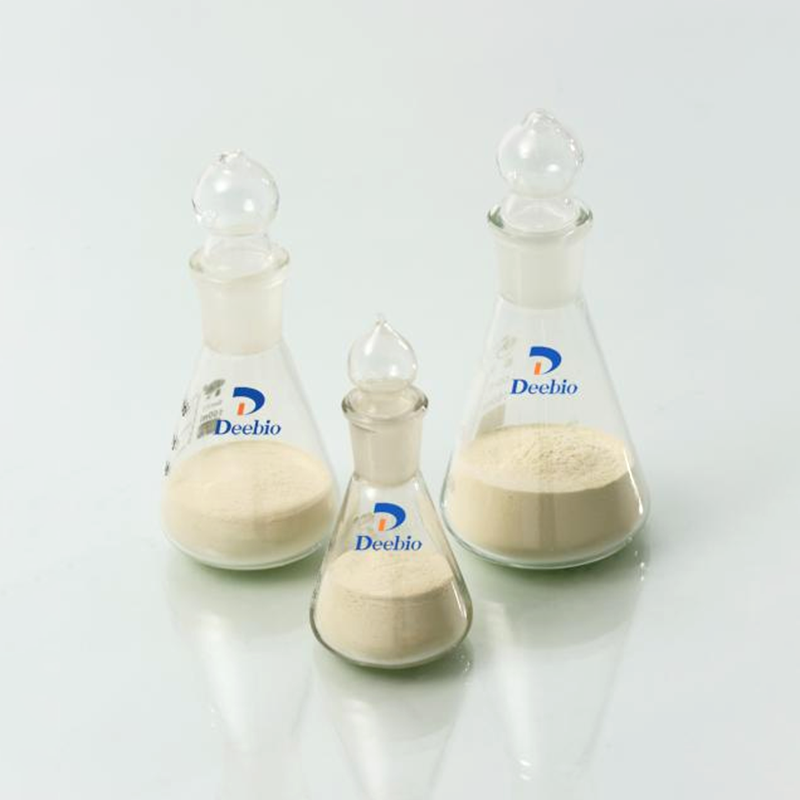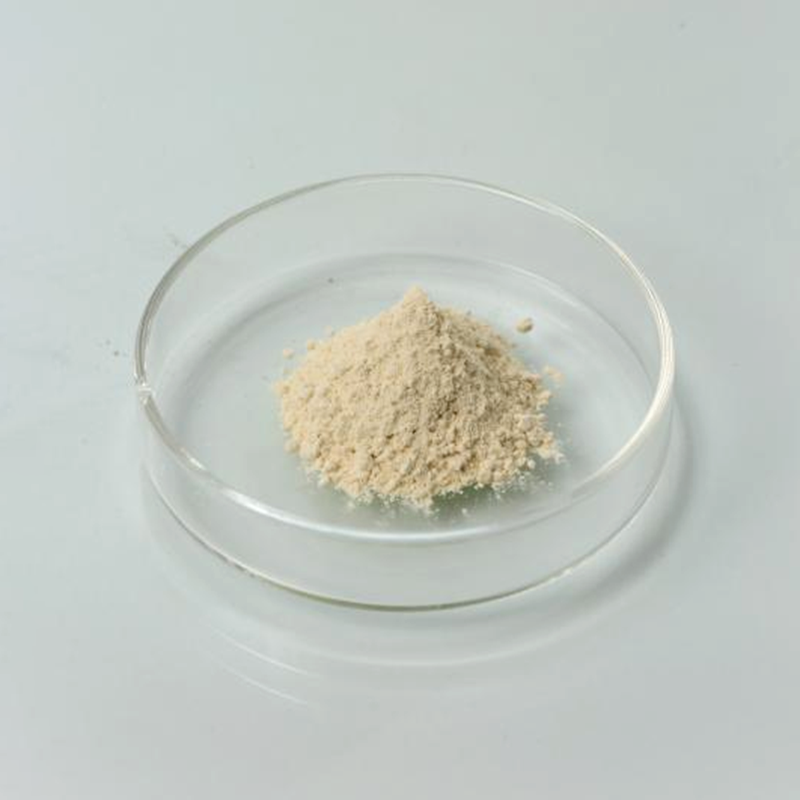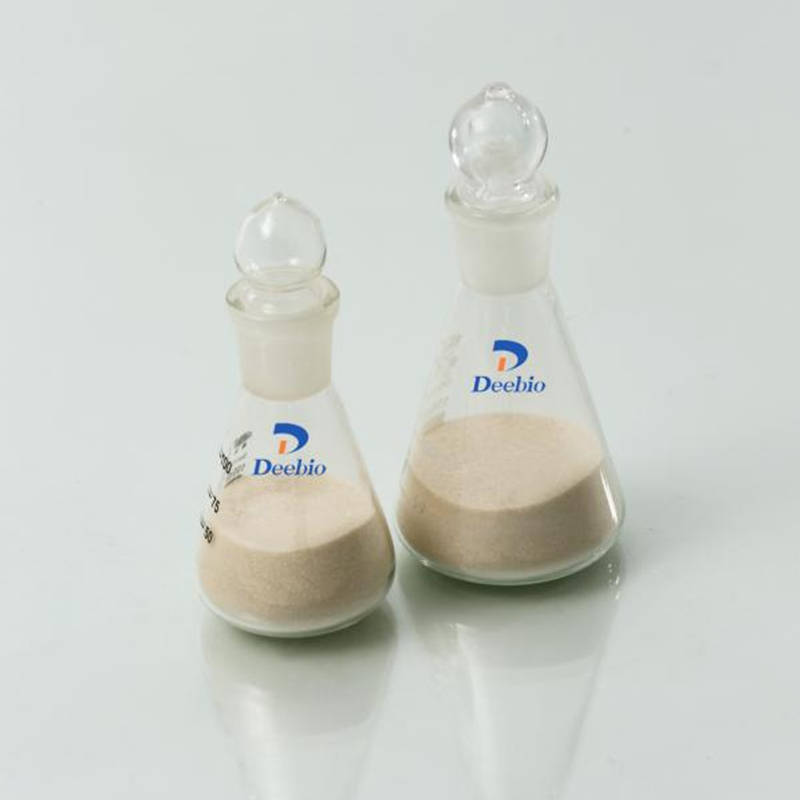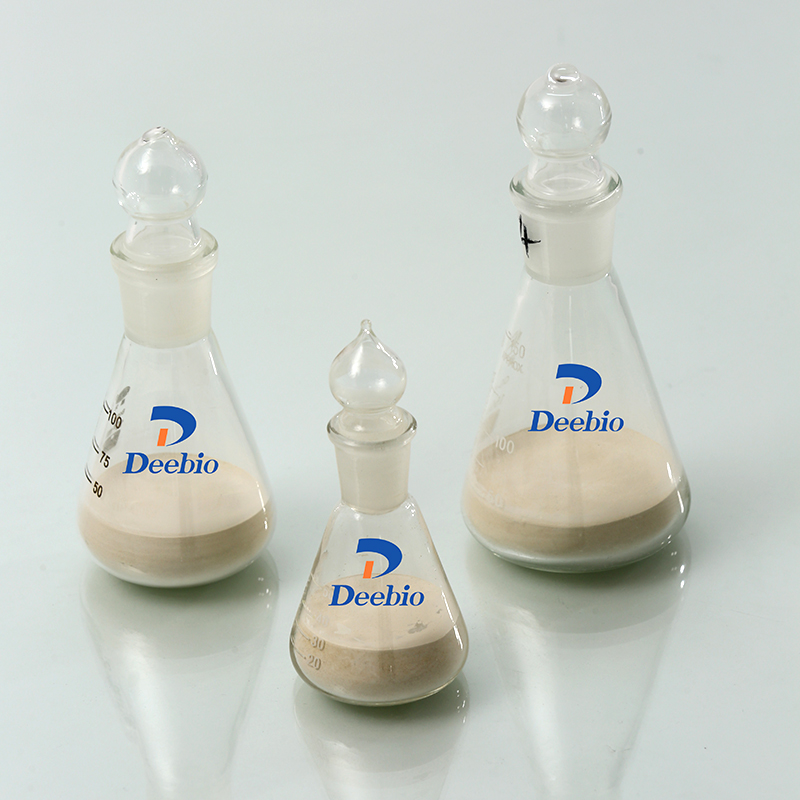
Products
Discountable price Beef Heme Iron - Pepsin of Deebio for Treating Dyspepsia Caused by Over Taking Proteinic Foods – Deebiotech
Discountable price Beef Heme Iron - Pepsin of Deebio for Treating Dyspepsia Caused by Over Taking Proteinic Foods – Deebiotech Detail:
Detail
1. Characters: White or slightly yellow, crystalline or amorphous powder.
2. Extraction Source: Porcine gastric mucosa.
3. Process: Pepsin is isolated from the pig’s gastric mucosa using a unique extraction technique.
4. Indications and uses: It is widely used for the dyspepsia caused by over taking proteinic foods, digestive hypofunction in the recovering period and lack of stomach proteinase caused by chronic atrophic gastritis, gastric cancer and malignant anaemia.Pepsin is an enzyme that is secreted in the digestive track of mammals. It works to break down proteins into smaller peptides which can readily be absorbed by the small intestine.
5. Biochem/physiol Actions: Unlike many other peptidases, pepsin hydrolyzes only peptide bonds, not amide or ester linkages. The cleavage specificity includes peptides with an aromatic acid on either side of the peptide bond, especially if the other residue is also an aromatic or a dicarboxylic amino acid. Increased susceptibility to hydrolysis occurs if there is a sulfur-containing amino acid close to the peptide bond, which has an aromatic amino acid. Pepsin will also preferentially cleave at the carboxyl side of phenylalanine and leucine, and to a lesser extent at the carboxyl side of glutamic acid residues. It does not cleave at valine, alanine, or glycine linkages. Z-L-tyrosyl-L-phenylalanine, Z-L-glutamyl-L-tyrosine, or Z-L-methionyl-L-tyrosine may be used as substrates for pepsin digestion. Pepsin is inhibited by several phenylalanine-containing peptides.
Why us?
·Passed the Chinese GMP and EU GMP
·27 years of biological enzyme R&D history
·Raw materials are traceable
·Comply with CP、EP、USP and customer standard
·High activity, high purity, high stability
·Export to over 30 countries and regions
·Has the ability of quality system management such as US FDA, Japan PMDA, South Korea MFDS, etc.
Specification
|
Test Items |
Company Specification |
|||
|
CP |
EP |
USP |
||
|
Characters |
White to light yellow powder; |
White or slightly yellow, |
White or slightly yellow, |
|
|
no mildew and deodorant; hygroscopic, |
crystalline or amorphous powder |
crystalline or amorphous powder |
||
|
the aqueous solution shows acidic reaction |
||||
|
Identification |
Conforms |
Conforms |
Conforms |
|
|
Tests |
Loss on drying |
≤ 5.0% (Dry environment100℃, 4h) |
≤ 5.0% (670Pa 60℃, 4h) |
≤ 5.0% (Vacuum decompression 60℃, 4h) |
|
Residual solvent |
———— |
≤ 5.0%According to EP(5.4) |
≤ 5.0%According to USP(467) |
|
|
Assay |
3800~12000U/g |
0.5~4.5Ph.Eur.U./mg |
3000~20000NF.U/mg |
|
|
Microbial |
TAMC |
≤5X103cfu/g |
≤ 10000cfu/g |
≤ 10000cfu/g |
|
Impurities |
TYMC |
≤ 100cfu/g |
≤ 100cfu/g |
≤ 100cfu/g |
|
E.coli |
Conforms |
Conforms |
Conforms |
|
|
Salmonella |
Conforms |
Conforms |
Conforms |
|
Product detail pictures:


Related Product Guide:
We've one of the most advanced generation tools, experienced and qualified engineers and workers, recognized good quality manage systems and a friendly skilled product sales workforce pre/after-sales support for Discountable price Beef Heme Iron - Pepsin of Deebio for Treating Dyspepsia Caused by Over Taking Proteinic Foods – Deebiotech , The product will supply to all over the world, such as: Costa Rica, Mumbai, Malaysia, For anyone who is keen on any of our goods right after you view our product list, please really feel absolutely free to get in touch with us for inquiries. You are able to send us emails and contact us for consultation and we shall respond to you as soon as we can. If it's easy, you may locate out our address in our web-site and come to our business for far more information of our products by your self. We are always ready to construct extended and steady co-operation relations with any possible customers in the related fields.
With a positive attitude of "regard the market, regard the custom, regard the science", the company works actively to do research and development. Hope we have a future business relationships and achieving mutual success.
















